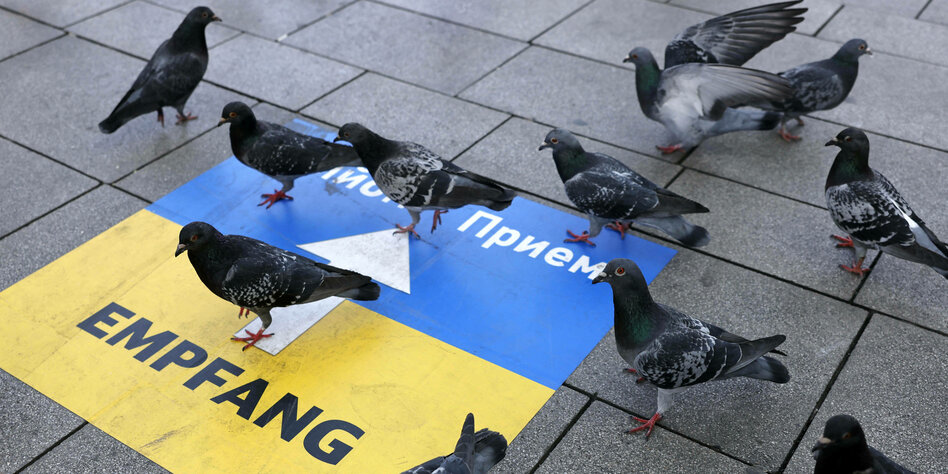Ukrainians did not choose refuge countries based on social benefits. We should not be victims of populist manipulation now.

A sign at Cologne central station shows refugees from Ukraine the way to the central contact point, April 1, 2022. Photo: Christoph Hardt/imago
The Russian invasion of Ukraine forced some six million Ukrainians to seek refuge in Europe. More than a million of them ended up in Germany. Many thought his stay outside Ukraine was temporary. But the longer the war lasts, the more refugees integrate and get used to their new place of residence. Some cannot return anywhere: their cities are destroyed or occupied by Russia.
On the third day of the Russian invasion, I saw long lines of elderly people and frightened women with children at the Polish-Ukrainian border. They didn't look like people who headed to rich Europe to collect social benefits. It is absurd and cynical to say that today. In the midst of this panic, most people did not choose their countries of refuge based on the level of social benefits. Some were welcomed by people willing to help at the border, in the Polish city of Przemyśl.
Others traveled to where they knew someone, others ended up by chance in an emergency shelter. Ukrainian refugees are not immigrants seeking economic benefits, they are victims of Russian aggression. Ukrainian war refugees do not deserve to become the object of populist manipulations aimed at the German electorate.
Great potential behind a lot of bureaucracy
This energy would be better spent developing an effective, long-term plan to give war refugees access to housing, employment and education. Because under current conditions, the employment of 27 percent of Ukrainian refugees is more of a success than a failure.
In most cases, the main obstacle to employment is not the benefits now available to citizens, but rather the bureaucratic obstacles in the labor market. It takes months for professional qualifications to be recognised. Anyone who was a surgeon in Ukraine hardly wants to work as a nurse in Germany, and a university professor does not want to work as a daycare assistant. Sometimes the language skills required are much greater than those needed to perform an unskilled job.
Germany has a great need for highly skilled workers; Ukrainian refugees have great potential to solve this problem. The prerequisite for this is that the government accepts it and makes their work easier. This will also happen if employment offices stop offering jobs to architects in kitchens and warehouses.
